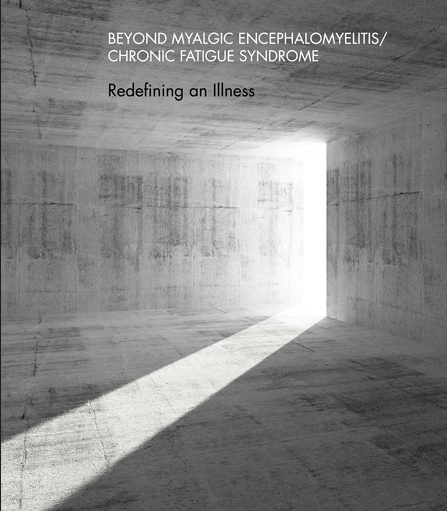What to know
In 2015, the Institute of Medicine (IOM), now the National Academy of Medicine (NAM), published a report on ME/CFS called "Beyond Myalgic Encephalomyelitis/Chronic Fatigue Syndrome: Redefining an Illness." The IOM committee summarized the evidence base and proposed redefining the diagnostic criteria to facilitate timely diagnosis and to improve understanding of the illness among healthcare professionals and the public.

Key Criteria for Diagnosis
In 2015, the Institute of Medicine published diagnostic criteria for ME/CFS in adults and children. The criteria state that three required symptoms and at least one of two additional symptoms are required for diagnosis.
Required symptoms
- A substantial reduction or impairment in ability to engage in pre-illness levels of activity (occupational, educational, social, or personal life) that:
- lasts for more than 6 months
- is accompanied by fatigue that is:
- often profound
- of new onset (not life-long)
- not the result of ongoing or unusual excessive exertion
- not substantially alleviated by rest
- often profound
- lasts for more than 6 months
- Post-exertional malaise (PEM)*—worsening of symptoms after physical, mental, or emotional exertion that would not have caused a problem before the illness.
- PEM often puts the patient in relapse that may last days, weeks, or even longer.
- For some patients, sensory overload (light and sound) can induce PEM.
- The symptoms typically get worse 12 to 48 hours after the activity or exposure and can last for days or even weeks.
- PEM often puts the patient in relapse that may last days, weeks, or even longer.
- Unrefreshing sleep*—
- Patients with ME/CFS may not feel better or less tired after a full night's sleep.
- This may occur despite the absence of specific objective sleep alterations.
- Patients with ME/CFS may not feel better or less tired after a full night's sleep.
Additional symptoms
To be diagnosed with ME/CFS, patients must have at least one of the symptoms below. These are in addition to the three required symptoms above.
- Cognitive impairment*—problems with thinking, memory, executive function, and information processing. They also have attention deficit and impaired psychomotor functions.
- All can be exacerbated by exertion, effort, prolonged upright posture, stress, or time pressure.
- This may have serious consequences on a patient's ability to maintain a job or attend school full time.
- All can be exacerbated by exertion, effort, prolonged upright posture, stress, or time pressure.
- Orthostatic intolerance— a worsening of symptoms upon assuming and maintaining upright posture. This is measured by heart rate and blood pressure abnormalities during standing, bedside orthostatic vital signs, or head-up tilt testing.
- Symptoms including lightheadedness, fainting, increased fatigue, cognitive worsening, headaches, or nausea are worsened while upright (either standing or sitting). Symptoms are improved (though not necessarily fully resolved) with lying down.
- Orthostatic intolerance is often the most bothersome manifestation of ME/CFS among adolescents.
- Symptoms including lightheadedness, fainting, increased fatigue, cognitive worsening, headaches, or nausea are worsened while upright (either standing or sitting). Symptoms are improved (though not necessarily fully resolved) with lying down.
* The frequency and severity of these symptoms need to be evaluated. The IOM committee specified, for diagnosis, patients should have symptoms least half of the time with moderate, substantial, or severe intensity.
Other Common ME/CFS Symptoms
Many people with ME/CFS also have other symptoms. These are not required for diagnosis. Other symptoms include:
- Muscle pain
- Joint pain without swelling or redness
- Headaches of a new type, pattern, or severity
- Swollen or tender lymph nodes in the neck or armpit
- A frequent or recurring sore throat
- Chills and night sweats
- Visual disturbances
- Sensitivity to light and sound
- Nausea
- Allergies or sensitivities to foods, odors, chemicals, or medications.
- Beyond Myalgic Encephalomyelitis/Chronic Fatigue Syndrome: Redefining an Illness | The National Academies Press
- Disclaimer: The content of this ME/CFS website is for informational purposes only and does not represent a federal guideline or recommendation for the treatment of ME/CFS. The information provided on this website is not intended to be a substitute for the medical judgment of the healthcare provider and does not indicate an exclusive course of action or treatment.
